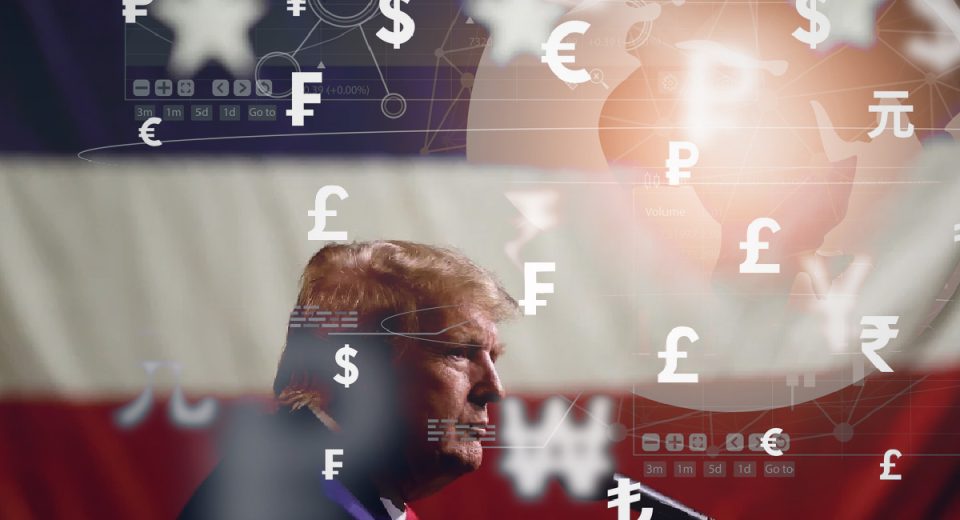The January 30, 2024, news of Biden’s plans to retaliate against the drone attack in Jordan lifted the WTI by $1.04 and Brent crude by $0.47. The uptick in the commodity’s price was supported by escalating tensions in the Middle East amid the ongoing Gaza-Palestine conflict. This is enough to let even beginner oil traders know that the geopolitical environment significantly impacts the market sentiment around oil. Therefore, analysis of the geopolitical atmosphere and news updates is essential to developing a well-rounded oil trading strategy. They help you discover attractive opportunities and make informed trading decisions.
The US is the largest producer and consumer of oil worldwide, with a 22% and 20% share, respectively. This makes the world’s largest economy’s international relations and internal stability vital to the commodity’s price. China, being the next highest consumer and a net importer of oil, means that US-China relations have a significant impact on oil prices. Due to this, two metrics have been developed to study the bilateral relationships.
Political Relationship Index (PRI)
This index categorises bilateral relationships among nations on a spectrum of rival to friendly. This is a demand-side metric and can be used to quantify political relations between any two nations.
Geopolitical Risk Index (GPR)
GPR uses the percentage and nature of articles in the top US newspapers to determine how the market sentiment may move. GPR is a supply-side metric. It moves heavily when there are geopolitical tensions involving the largest oil producers.
The two metrics are popularly studied to assess the impact of the US-China relationship on oil prices. In this case, PRI includes US-China exclusively, and GPR determines the overall uncertainty around Chinese international relations. An improved political relationship between China and the US weighs on oil prices (PRI approaches friendly). Investor sentiment turns bearish under unexpected shocks to the PRI. Heightened geopolitical risks and unexpected shocks to the GPR lead to concerns regarding supply chain disruptions, driving oil prices higher. The two, therefore, serve as “complementary proxies” for each other.
Elections: Speculations on the Rise
The internal political atmosphere in the US also affects oil prices. For instance, according to the S&P Global Commodity Insights, oil prices decline in the weeks following the Presidential election till the inauguration. The price starts rising after or just before the inauguration day. While historically, the president has little power over oil prices, 2024 might be different. This is because although the long-term trend has been to shift energy production and consumption towards cleaner sources, the immediate approach of the two presidential candidates is different. While a Trump win means a more pro-oil direction to stimulate economic growth, Kamala Harris is expected to promote the EV and solar segments, which may trigger a negative sentiment towards oil. Irrespective of who wins, oil prices will remain volatile. Consequently, traders will continue to get abundant oil trading opportunities as the markets speculate on the White House’s policies on oil.
Sanctions, such as export restrictions and trade embargos, are enforced to stifle a country’s economy. These can be imposed by a country unilaterally, multilaterally, or by an international organisation, such as the EU. Did you know that the US is known to impose the highest number of sanctions against other nations?
When these sanctions are imposed on a net oil exporter to stifle its trade, it positively impacts oil prices. It also impacts oil importing nations that are forced to switch to other sources due to a price hike. For instance, the sanctions against Russia in 2022 severely affected the oil supply to the eurozone. Energy prices skyrocketed so much that inflation across the region soared massively.
When sanctions are imposed on net importers, the impact is usually a function of changes in the supply chain or demand shifts according to the importer’s needs. For instance, when the US imposed sanctions on Venezuela, the impact on the WTI was only fleeting. However, when the US imposes bans on China, the second largest consumer and a net oil importer, Brent prices tend to climb. This is because China fulfils its demand crude from other producers, such as Russia (a rival of the US in the oil market) and the OPEC countries (the group that competes with the US for oil market share).
- The Middle East: Oil Hot Zone
The Middle East accounts for the largest supply chain of crude oil. Additionally, the region outweighs the US’s production potential. Most importantly, the Middle East is a sensitive region due to multiple ongoing conflicts among nations and collaborations with rivals outside the region. This makes the regional geopolitical atmosphere critical to global oil prices. For instance, oil prices surged 3% amid fears of a widening conflict in the region in the second week of August 2024. There are several reasons for such an impact:
- Internal conflict turns into a supply chain rivalry to block the rival’s ships, disrupting supply.
- Regional conflict risks damage to oil reserves, creating panic across the markets.
- Conflicts increase the risk of embargos, raising the fear sentiment among importers.
Explore More Opportunities by Trading Oil via CFDs
A commodity’s price is largely a function of demand and supply. Geopolitical tensions impact trade flows and the demand-supply balance. This moves the oil markets. Oil traders try to take advantage of the volatility by developing strategies to explore rising and falling prices. Contracts for Difference (CFDs) are a derivative instrument that allow traders to do just that. CFDs offer low entry barrier to the attractive oil market and can be traded on margin to enhance your purchasing power. However, this necessitates risk management as oil trading with CFDs amplifies potential profits and losses.
To Sum Up
- Geopolitical tensions impact oil prices.
- Oil traders keep an eye on geopolitical updates to make informed decisions.
- Trade embargos and sanctions on net importers and exporters impact oil prices differently.
- The US-China relationship affects oil prices so much that PRI and GRP have been developed to indicate the same.
- The tensions in the Middle Eastern create supply chain risks, affecting investor sentiment, which moves the oil markets.
- CFDs enable traders to explore the opportunities arising in both bullish and bearish oil markets.
Disclaimer
All data, information and materials are published and provided “as is” solely for informational purposes only, and is not intended nor should be considered, in any way, as investment advice, recommendations, and/or suggestions for performing any actions with financial instruments. The information and opinions presented do not take into account any particular individual’s investment objectives, financial situation or needs, and hence does not constitute as an advice or a recommendation with respect to any investment product. All investors should seek advice from certified financial advisors based on their unique situation before making any investment decisions in accordance to their personal risk appetite. Blackwell Global endeavours to ensure that the information provided is complete and correct, but make no representation as to the actuality, accuracy or completeness of the information. Information, data and opinions may change without notice and Blackwell Global is not obliged to update on the changes. The opinions and views expressed are solely those of the authors and analysts and do not necessarily represent that of Blackwell Global or its management, shareholders, and affiliates. Any projections or views of the market provided may not prove to be accurate. Past performance is not necessarily an indicative of future performance. Blackwell Global assumes no liability for any loss arising directly or indirectly from use of or reliance on such information here in contained. Reproduction of this information, in whole or in part, is not permitted.





